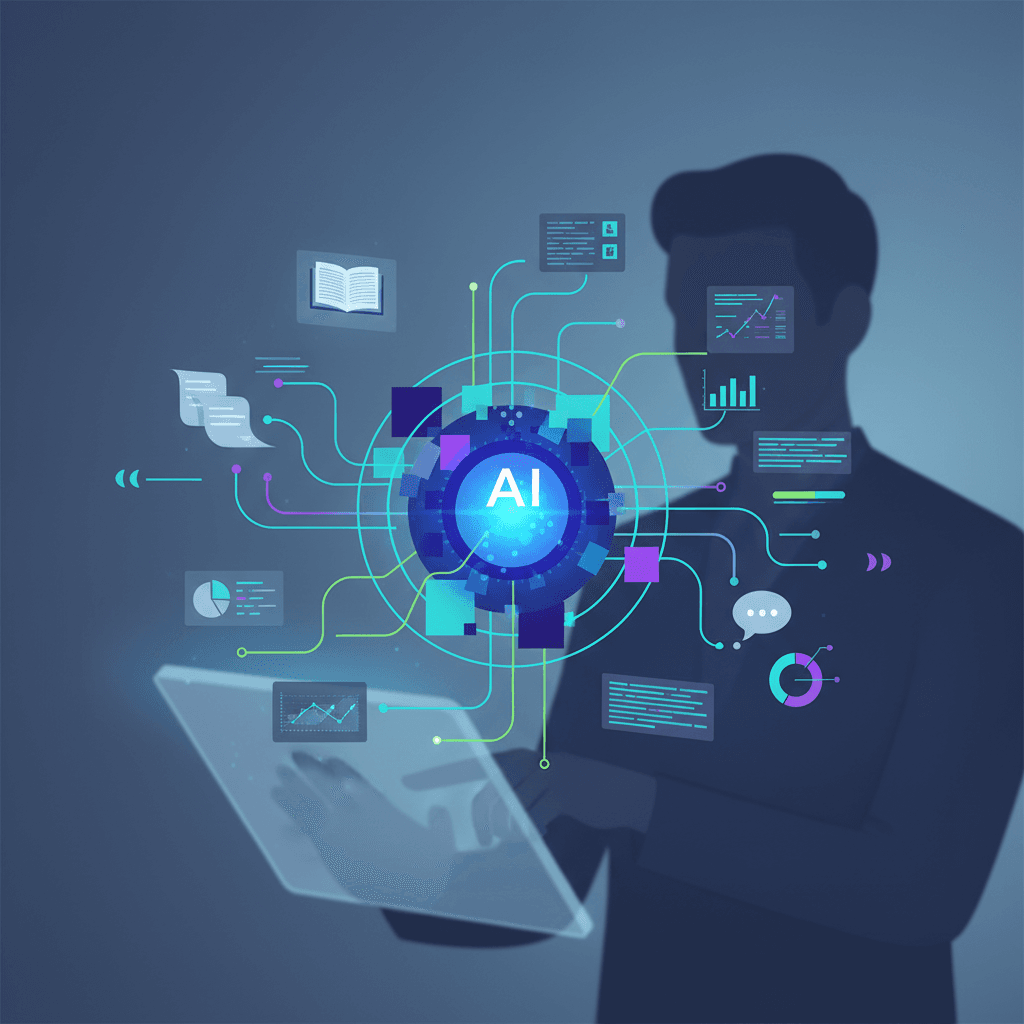Notion 3.0 Redefines Productivity with Autonomous AI Agents Handling Full Workflows
Notion 3.0 unveils autonomous AI agents that act as digital teammates, independently managing complex workflows and freeing users for strategy.
September 19, 2025

In a significant move to redefine the landscape of productivity software, Notion has released version 3.0 of its platform, centered around the introduction of highly autonomous AI "agents." These agents are designed to function as digital teammates, capable of managing entire workflows, from initial document creation and data analysis to executing complex, multi-step projects.[1][2][3] This development marks a pivotal shift from AI as a passive assistant to a proactive partner, capable of independently carrying out tasks that have traditionally required significant manual effort. The new functionality, which the company frames as the evolution from a tool to a partner, aims to automate routine "busywork," allowing users to focus on more strategic and creative endeavors.[4][5][6]
The core of the Notion 3.0 update lies in the capabilities of these new AI agents. Unlike previous iterations of AI in productivity tools, which often focused on content generation or simple task automation, Notion's agents are built to handle sustained, complex operations. They can perform autonomous work for extended periods, reportedly up to 20 minutes at a time, across hundreds of pages and databases simultaneously.[1][2][3] This allows them to tackle substantial projects such as generating a comprehensive market analysis by pulling data from internal documents and external websites, creating a project plan complete with tasks and deadlines, and even assigning those tasks to team members.[7][2][8] To achieve this, the agents leverage a sophisticated memory system, utilizing information within a user's Notion workspace to understand context, preferences, and work styles, ensuring the output is personalized and relevant.[1][2] This memory is stored in editable profiles, giving users control over how the agent learns and behaves over time.[1][2]
A key aspect of these AI agents is their deep integration with a user's existing digital ecosystem. The agents can connect to and pull information from third-party applications like Slack, Google Drive, GitHub, and Zendesk, always operating within the user's established permissions.[7][3][8] This cross-platform capability is crucial, as it allows the agent to synthesize information from various sources to produce more comprehensive and contextually aware results. For example, an agent could be tasked with compiling all recent customer feedback from Slack channels and Zendesk tickets, analyzing the sentiment, and generating a summarized report with actionable insights directly within a Notion database.[1][8] This level of integration represents a significant step toward a more centralized and intelligent workflow, reducing the friction of switching between multiple applications.[9]
The launch of Notion 3.0 and its AI agents places the company in direct competition with technology giants like Microsoft and Google, who are heavily investing in their own AI-powered productivity suites, such as Copilot and Google Workspace AI.[10][11] While Microsoft 365 benefits from its deep integration within the enterprise ecosystem and robust governance features, Notion's advantage lies in its flexibility and user-centric design.[10][11] The introduction of agentic AI capable of autonomous workflows is seen as a significant differentiator that could attract users looking for more powerful and customizable automation.[10] Industry analysts suggest this move will intensify the focus on autonomous AI features among productivity platforms, with the market's direction depending on factors like reliability, security, and the seamlessness of integrations.[3] Looking ahead, Notion plans to expand its agentic AI capabilities further by introducing "Custom Agents."[7][5] These specialized agents will be configurable to run on schedules or in response to specific triggers, effectively creating a team of automated specialists to handle recurring workflows, such as compiling weekly progress reports or triaging IT requests, even when the user is offline.[7][5]
The introduction of sophisticated AI agents in a mainstream productivity tool like Notion signals a broader shift in the future of knowledge work. The move from AI as a tool for suggestion to an agent for execution has profound implications for how tasks are managed and completed. By embedding intelligence directly into workflows, these platforms are democratizing access to advanced automation, making it available not just to large enterprises but to small teams and individuals as well.[5][6] This transition points toward a future where human workers are augmented by a digital workforce of AI agents, handling the mundane and repetitive aspects of their jobs.[5] As this technology matures, the emphasis in the workplace is likely to shift further from task execution to strategic thinking, problem-solving, and creative innovation, fundamentally altering the nature of productivity in the digital age.
Sources
[3]
[4]
[5]
[9]
[10]